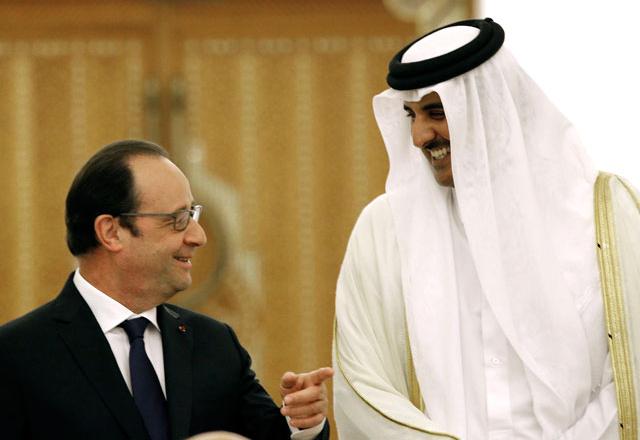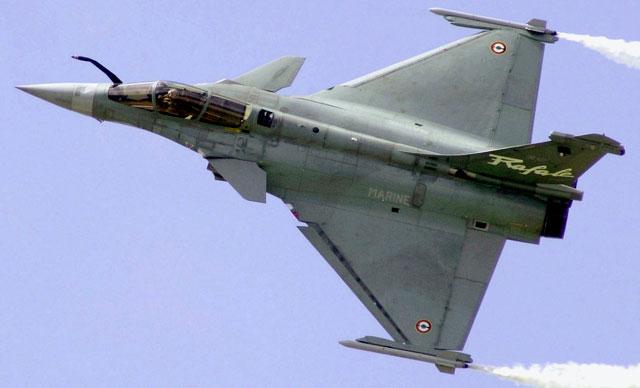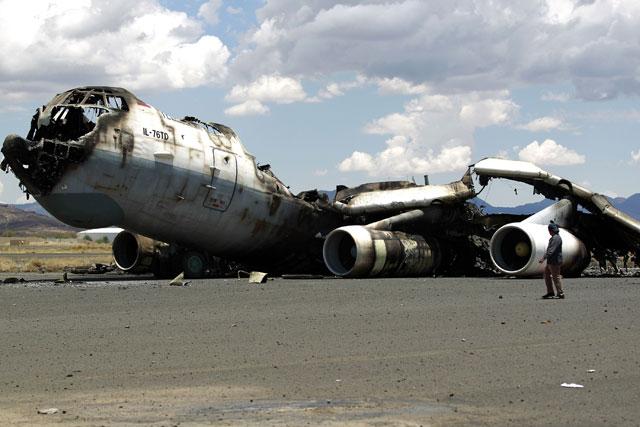You are here
Iran’s Rouhani denounces boasting over arms deals
By AFP - May 05,2015 - Last updated at May 05,2015
TEHRAN — Iran's president denounced western countries for taking pride in arms sales Tuesday, after France signed a warplanes deal with Qatar, saying weapons agreements add to Middle East instability.
Although he did not name France, Hassan Rouhani's comments came after it agreed a 6.3-billion-euro ($7-billion) contract with Qatari defence officials in Doha.
French President Francois Hollande was at the signing ceremony prior to a Gulf Cooperation Council (GCC) leaders' meeting in Riyadh, the first time a western head of state has attended a GCC summit.
"Good choice," Hollande said on Monday as the deal, which includes an order for 24 Rafale fighter jets with an option on a further 12, was signed.
However Rouhani, in a speech carried live on state television, said that given the turmoil wracking the region, large military equipment or arms deals would not help the situation.
"The world should not smile at the problem of our region. Some American or European nation should not be proud of selling more weapons to this or that country," he said.
"They create insecurity in the region and unjustly make regional countries scared of each other, preparing the ground for a weapons market."
The France-Qatar deal involves the French aerospace firm Dassault. Having struggled for years to sell any Rafales abroad, Dassault has recently scored lucrative high-profile contracts with Egypt, India, and now Qatar.
However, Rouhani, again not naming France or Hollande, criticised arms deals involving foreign countries that will end up being used in conflicts elsewhere.
"They come to the region and are proud of having sold billions of dollars or euros of weapons to these countries," he said.
"Is this the way to create employment in western countries? For someone to be employed in an arms factory while people are killed in Baghdad, Damascus or Sanaa?"
The last city Rouhani named — the Yemeni capital — is at the centre of Iran's dispute with Saudi Arabia, which for more than one month has been bombing Shiite Huthi rebels in Yemen.
Iran, the region's dominant Shiite power, which provides military aid and support to several Palestinian groups and Hezbollah in Lebanon, supports the Houthis and opposes the daily raids by Saudi Arabia and its Sunni Arab allies, including Qatar.
Iran has denied arming the Houthis and has called for peace talks in Yemen. The conflict there is increasingly seen as a proxy war between Tehran and Riyadh.
The Riyadh summit brings together the leaders of Bahrain, Kuwait, Oman, Qatar, Saudi Arabia and the United Arab Emirates.
While Yemen is expected to dominate, Gulf leaders are also likely to voice concern over a potential final nuclear deal between Iran and six world powers led by the United States.
Related Articles
French President Francois Hollande sought to boost ties in the Gulf Monday as he oversaw the signing of a warplanes deal with Qatar and arrived in Saudi Arabia for a summit.
It struggled for years to sell its Rafale jets abroad but French defence group Dassault has finally scored several lucrative deals, thanks in part to anti-US suspicion in the Middle East, experts say.
Saudi Arabia's King Salman Bin Abdulaziz said Tuesday that Gulf leaders must stand up to Iran, as Yemeni rebels backed by Tehran attacked a Saudi border town with mortar shells.














